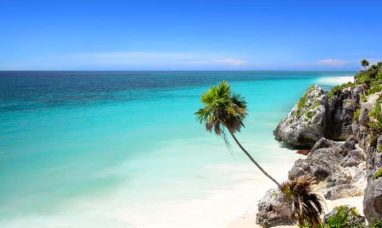Nine corridor projects will receive funding to improve connectivity and conserve biodiversity in priority areas across Canada
GATINEAU, QC, Nov. 22, 2024 /CNW/ – The Government of Canada is committed to protecting biodiversity and conserving 30 per cent of land and inland waters and 30 per cent of marine and coastal areas by 2030. But to be most effective, these protected areas must be properly connected to ensure species can move freely, interact, and find food and suitable habitat.
Today, the Honourable Steven Guilbeault, Minister of Environment and Climate Change and Minister responsible for Parks Canada, announced nearly $6 million in funding to support nine corridor projects to enhance ecological connectivity in priority areas across Canada.
Funded by Parks Canada’s National Program for Ecological Corridors, these projects align with the program’s objective to catalyse corridor initiatives by partners to maintain and restore ecological connectivity between protected and conserved areas as well as areas of natural habitat.
These projects are being led and partially funded by environmental non-profit, non-governmental organizations who will provide more than $6.6 million of in-kind and monetary contributions, in addition to the $5.7 million being contributed by the National Program for Ecological Corridors to advance on-the-ground connectivity work in 8 of the 23 national priority areas for ecological corridors. These areas were identified by Parks Canada in collaboration with a diverse range of partners, experts, stakeholders, and the public, using national-scale data and several scientific assessment methodologies. The priority areas indicate where ecological corridors would be most impactful toward achieving a well-connected network of protected and conserved areas.
Parks and protected areas in Canada are part of "nature-based solutions" that help nature and people adapt to climate change. These places conserve biodiversity, protect ecosystem services, connect landscapes, take up and store carbon, build knowledge and understanding, and inspire local action to reduce habitat fragmentation.
By investing in new and innovative programs like Parks Canada’s National Program for Ecological Corridors, the Government of Canada, in collaboration with the provinces, territories, and Indigenous governments across the country, is fulfilling its commitment to halt and reverse biodiversity loss by 2030 and achieve a full recovery of nature in Canada by 2050.
Quote
"As an integral part of nature-based solutions to climate change, ecological corridors strategically located in priority areas across Canada will greatly improve the connectivity between protected and conserved areas, allowing species to move and interact freely on the landscape. These corridors will help stop biodiversity loss and contribute to achieving the recovery of nature by 2050. By investing in key programs like Parks Canada’s National Program for Ecological Corridors, our government continues to strive toward our ambitious target to protect 30 per cent of lands and waters in Canada by 2030."
The Honourable Steven Guilbeault
Minister of Environment and Climate Change and Minister responsible for Parks Canada
Quick Facts
- Guided by western and Indigenous science and local perspectives, Canada is committed to conserving 30 per cent of lands, freshwater, and oceans by 2030.
- Ecological corridors deliver many benefits beyond biodiversity conservation and climate change adaptation. They contribute to sustainable livelihoods for local communities, they increase opportunities for people to connect with nature, and they promote human-wildlife coexistence.
- Launched in 2022, Parks Canada’s National Program for Ecological Corridors promotes the creation of ecological corridors in key areas across Canada.
- National priority areas for ecological corridors in Canada are connectivity conservation ‘hotspots’ where ecological corridors can have the biggest impact toward sustaining biodiversity and ecological functions into the future.
- Parks Canada’s National Program for Ecological Corridors supports Indigenous leadership by recognizing Indigenous stewardship values as a priority goal for corridors. The program also supports Indigenous-led pilot projects and other projects that are engaging and collaborating with local Indigenous communities on the stewardship of these lands.
Related Documents
- News Release: Parks Canada and partners work to restore ecological connectivity in the Frontenac Arch region through ethical space and co-governance
- News Release: Parks Canada and partners work to restore ecological connectivity in northern Ontario
- Backgrounder: List of the nine selected projects for funding across Canada by province
Related Links
- Parks Canada
- Parks Canada National Program for Ecological Corridors
- Ecological connectivity at Parks Canada
SOURCE Parks Canada (HQ)
![]()
Featured Image: Megapixl @ Imdan















